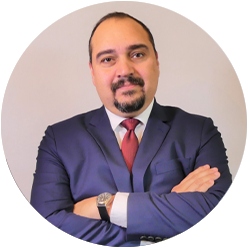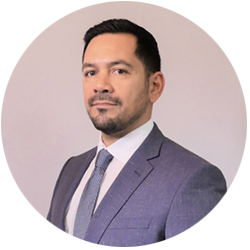In Florida, being accused of a violent crime can be frightening and confusing. Many questions and concerns come to mind when facing these kinds of charges. For those facing accusations, understanding the legal process can make a big difference. This guide will go over some of the most common questions defendants have about violent crime charges in Florida. It covers what violent crimes are, how charges are decided, what rights defendants have, and the importance of legal representation. Having clear answers to these questions may ease some worries and help defendants better understand the road ahead. At, Victory Law Firm P.A., we are here to guide you through the legal process and help you navigate the complexities of your case
What Counts as a Violent Crime in Florida?
Violent crimes involve physical force or threats against another person. In Florida, violent crimes can include acts like assault, battery, robbery, domestic violence, and homicide. Each of these crimes has specific definitions under Florida law. Assault usually means threatening someone with harm, while battery involves actual physical contact or harm. Robbery is taking something from someone else using force or threats, while homicide involves causing the death of another person. Florida takes these crimes seriously because they threaten people’s safety and well-being.
How Are Violent Crimes Charged in Florida?
Violent crimes in Florida can be charged as either misdemeanors or felonies, depending on the nature of the offense and the harm caused. Misdemeanors are usually less serious and can result in shorter jail sentences and smaller fines. Felonies are more serious, often resulting in longer prison sentences, larger fines, and more severe consequences. For example, a simple assault might be charged as a misdemeanor, while aggravated assault with a weapon could be charged as a felony. The type and seriousness of the charge will depend on many factors, including the defendant’s past record and the specific details of the case.
What Are the Possible Penalties for Violent Crimes?
Penalties for violent crimes can vary widely depending on the charge. Some possible penalties include fines, jail or prison time, probation, and community service. For minor violent crimes, like a first-time simple assault, a judge might order probation or a short jail sentence. For more serious charges, like armed robbery or homicide, the penalties are often much harsher, potentially including many years or even life in prison. In Florida, certain violent crimes also have mandatory minimum sentences. This means that if convicted, the defendant must serve a certain amount of time in prison without the possibility of early release.
How Do Prosecutors Decide to File Charges?
Prosecutors in Florida look at the evidence before deciding whether to file charges and which charges to bring. They will review police reports, witness statements, physical evidence, and any other relevant information. If the evidence is strong, they are more likely to file charges and proceed with the case. However, if there are weaknesses in the evidence or doubts about the case, they may decide to drop the charges or reduce them to a lesser offense. Prosecutors also consider the seriousness of the crime, the defendant’s past criminal record, and whether they believe they can prove the case in court.
What Rights Do Defendants Have in Violent Crime Cases?
Defendants have certain rights under the law that help ensure a fair trial. In Florida, defendants have the right to remain silent, the right to a lawyer, the right to a fair and speedy trial, and the right to confront witnesses who testify against them. These rights are important for protecting defendants and making sure they are treated fairly. For example, the right to remain silent means that defendants do not have to answer questions from law enforcement or the prosecution, which can help avoid self-incrimination. The right to a lawyer means that defendants can get help from a legal professional who understands the law and can provide guidance and representation.
How Does Self-Defense Work as a Defense in Florida?
In some cases, defendants accused of a violent crime may argue that they acted in self-defense. Florida law allows individuals to use force to protect themselves or others from harm if they reasonably believe it is necessary. This can include both non-deadly force and deadly force, depending on the situation. For example, if someone is physically attacked, they may have the right to defend themselves by using enough force to stop the attack. However, the amount of force used must be reasonable in relation to the threat. Self-defense can be a complicated area of the law, so having a lawyer who understands these defenses is crucial.
Choosing a Car Accident Attorney Personal Injury Case ValueRelated Videos
What Should I Do if I Have Been Accused of a Violent Crime?
If you have been accused of a violent crime in Florida, it is important to take certain steps to protect yourself. First, you should avoid discussing the details of your case with anyone except your lawyer. Anything you say can be used against you in court, so it is best to remain silent and avoid speaking about the incident. Second, you should contact a lawyer as soon as possible. A lawyer can review your case, explain your rights, and begin building a defense. Finally, follow your lawyer’s advice throughout the case, as they can provide valuable guidance and help you navigate the legal process.
Can a Lawyer Help Me Avoid a Conviction?
A lawyer can make a big difference in violent crime cases by providing advice, gathering evidence, and developing a defense strategy. In some cases, a lawyer may be able to negotiate a plea deal with the prosecutor, which can result in reduced charges or a lesser sentence. In other cases, a lawyer may be able to challenge the evidence, argue for the charges to be dismissed, or present a strong defense in court. While no lawyer can guarantee an outcome, having legal representation often improves a defendant’s chances of a more favorable result.
Serious Results
What Are the Defenses Commonly Used in Violent Crime Cases?
Several defenses can be used in violent crime cases, depending on the facts of each case. Common defenses include self-defense, mistaken identity, lack of intent, and proving that the defendant did not commit the crime. For example, if someone is falsely accused, they may use evidence to show they were not at the crime scene or that another person committed the act. In cases involving self-defense, the defendant may argue that they used force only to protect themselves from harm. Each defense has its own requirements and complexities, so having a knowledgeable lawyer to present the defense is key.
What Happens During a Trial for a Violent Crime?
If a violent crime case goes to trial, it usually begins with jury selection, where lawyers for both sides choose jurors who will decide the case. Then, both the prosecution and the defense present opening statements, giving the jury an overview of their arguments. Next, the prosecution presents its case, calling witnesses and showing evidence to prove the defendant’s guilt. The defense then has the chance to present its case, often by calling witnesses, questioning the prosecution’s evidence, or providing evidence of its own. After both sides present their cases, they give closing statements, summarizing their main points. Finally, the jury deliberates and reaches a verdict.
How Can Violent Crime Charges Impact My Future?
A conviction for a violent crime can have serious, lasting consequences. Besides fines and imprisonment, it can affect a person’s career, family relationships, and personal reputation. Many employers conduct background checks, so a violent crime conviction can make it harder to find a job. It may also limit housing options and affect custody arrangements if the defendant has children. Even after serving a sentence, these consequences can make it challenging to move forward in life. Because of the high stakes, it is important for defendants to do everything possible to defend themselves and work toward a positive outcome in their case.
What Should I Do if I Am Facing a Violent Crime Charge in Florida?
If you are facing a violent crime charge in Florida, it is essential to stay calm and seek legal guidance. The decisions you make now can impact your future, so taking careful steps is crucial. Reaching out to a lawyer experienced in violent crime cases can provide you with the guidance needed during this time. They can assess your case, explain your options, and guide you through each stage of the legal process. Having someone who understands the law and can protect your rights can make a difference in how your case turns out.
If you or someone you know is facing violent crime charges in Florida and needs help, contact Victory Law Firm P.A. Our team understands the seriousness of these charges and is here to help you navigate this difficult time. With Victory Law Firm P.A. by your side, you will have the support and representation you need to work toward the best possible outcome.



